samedi, 29 novembre 2014
Betoging, Brussel, 30 november 2014
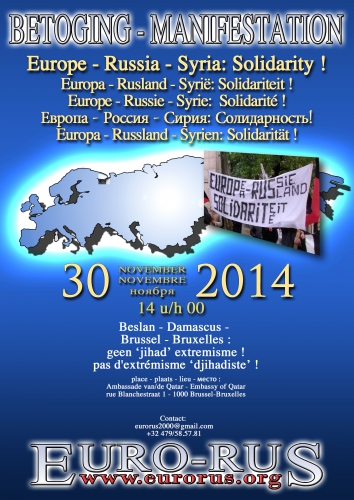
11:24 Publié dans Evénement | Lien permanent | Commentaires (0) | Tags : événement, brussel, bruxelles, belgique, politique internationale |  |
|  del.icio.us |
del.icio.us |  |
|  Digg |
Digg | ![]() Facebook
Facebook
Neoliberal Violence in the Age of Orwellian Nightmares

Neoliberal Violence in the Age of Orwellian Nightmares
The shadow of Orwell’s nightmarish vision of a totalitarian society with its all-embracing reach of surveillance and repression now works its way through American politics like a lethal virus. Orwell’s dystopian apparition of a totalitarian society with its all-embracing reach of surveillance and repression has come to fruition, reshaping the American body politic in the guise of a poorly orchestrated Reality TV show. As Orwell rightly predicted, one of the more significant characteristics of an authoritarian society is its willingness to distort the truth while simultaneously suppressing dissent. But Orwell was only partly right. Today, rather than just agressively instill a sense of fear, dread and isolation, contemporary totalitarian commitment also wins over large number of individuals through appeals to our most debased instincts projected on to hapless others. Our lurid fascination with others’ humiliation and pain is often disguised even to ourselves as entertainment and humor, if perhaps admittedly a little perverse. Under the new authoritarianism fear mixes with the endless production of neoliberal commonsense and a deadening coma-inducing form of celebrity culture. Huxley’s Soma now joins hands with Orwell’s surveillance state.
State terrorism works best when it masks the effects of its power while aggressively producing neoliberal commonsense through diverse cultural apparatuses in order to normalize the values and conditions that legitimate its reign of terror. For instance, Umberto Eco argues that one element of authoritarianism is the rise of an Orwellian version of newspeak, or what he labels as the language of “eternal fascism,” whose purpose is to produce “an impoverished vocabulary, and an elementary syntax [whose consequence is] to limit the instruments for complex and critical reasoning.” Dwight Macdonald, writing in the aftermath of World War II and the horrors of the Nazi Holocaust, argues that as more and more people are excluded from the experience of political agency and exhibit “less and less control over the policies” of their governments, ethics is reduced to the status of mere platitudes and politics becomes banal. What has become clear to many Americans is that the electoral system is bankrupt. As the political process becomes more privatized, outsourced, and overrun with money from corporations and billionaires, a wounded republic is on its death bed, gasping for life. In addition, as the state becomes more tightly controlled, organized, and rationalized by the financial elite, politics and morality are deprived of any substance and relevance, thus making it difficult for people to either care about the obligations of critical citizenship or to participate in the broader landscape of politics and power. Far easier to wax ironic or cynical.
For Orwell, the state was organized through traditional forms of authoritarian political power. What Orwell could not have imagined was the reconfiguration of the state under a form of corporate sovereignty in which corporations, the financial elite, and the ultra-rich completely controlled the state and its modes of governance. Hyper-capitalism was no longer merely protected by the state, it has become the state. As is well known, the fossil fuel companies, megabanks, and defense industries such as Boeing, General dynamics Northrop Grumman, and Lockheed Martin now control the major seats of political power and the commanding institutions necessary to insure that the deeply anti-democratic state rule in the interests of the few while exploiting and repressing the many. This was recently made clear by a Princeton University scientific study that analyzed policies passed by the U.S. government from 1981 to 2002 and discovered that vast majority of such policies had nothing to do with the needs and voiced interests of the American people. As the authors pointed out, “the preferences of the average American appear to have only a minuscule, near-zero, statistically non-significant impact upon public policy.”[1] Put bluntly, the study made clear that the opinions of the public per se simply do not count. The study concluded that rather than being a democracy the United States had become an oligarchy where power is effectively wielded by “the rich, the well connected and the politically powerful, as well as particularly well placed individuals in institutions like banking and finance or the military.”[2]
As a result of this mode of governance, individual and social agency are in crisis and are disappearing in a society in which 99 percent of the public, especially young people and minorities of class and color are considered disposable. At a time when politics is nation-based and power is global, the rulers of the Orwellian state no longer care about the social contract and make no compromises in their ruthless pursuits of power and profits. The social contract, especially in the United States, is on life support as social provisions are cut, pensions are decimated, and the certainty of a once secure job disappears. The new free-floating global elite are unrestrained by the old rules of politics and not only refuse to make any political concessions, they also no longer believe in long-term social investments and are more than willing to condemn those populations now considered disposable to a savage form of casino capitalism.
Isolation, privatization, and the cold logic of a mad version of neoliberal rationality have created new social formations and a social order in which it becomes difficult to form communal bonds, deep connections, a sense of intimacy, and long term commitments. In the manner of Huxley’s cautionary forewarning, people now participate willingly in their own oppression. Neoliberalism has created a society of ruling brutes for whom pain and suffering are now viewed as entertainment, warfare a permanent state of existence, and militarism as the most powerful force shaping masculinity. Politics has taken an exit from ethics and thus the issue of [3]social costs is divorced from any form of intervention in the world. This is the ideological script of political zombies who, as Alain Badiou points out, now control a lifeless version of democracy. Atomization, emotional self-management, and the ideology of self-interests are the curse of both neoliberal societies and democracy itself. Terror now takes the form of the atomization of individual agency and the politics of a moral coma.[4] Poverty, joblessness, low wage work, and the threat of state sanctioned violence produce among many Americans the ongoing fear of a life of perpetual misery and an ongoing struggle simply to survive. Collective paralysis now governs American society, reinforced by a fixed hedonism. Risk taking is individualized through a shameless appeal to resilience.[5] Insecurity coupled with a climate of fear and surveillance dampens dissent and promotes a kind of ethical tranquilization fed daily by the mobilization of endless moral panics, whether they reference immigrants allegedly storming American borders or foreign terrorists blowing up shopping centers. Such conditions more often than not produce withdrawal, insecurity, paranoia, and cynicism rather than rebellion among the American populace.
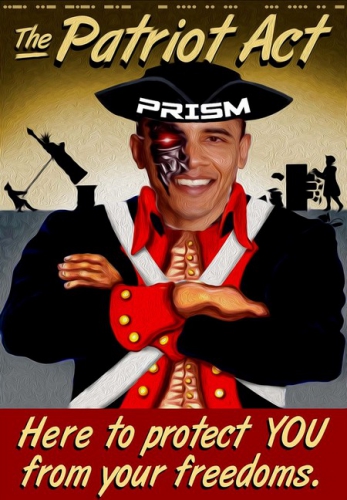
Americans now live under a form of casino capitalism that revels in deception, kills the radical imagination, depoliticizes the public, and promulgates what might be called an all-embracing punishing state. Idealism and hope for a better future has been replaced by a repressive disciplining machine and a surveillance state that turns every space into a war zone, criminalizes social problems, and legitimates state violence as the most important practice for addressing important social issues. The carceral state and the surveillance state now work together to trump security over freedom and justice while solidifying the rule of the financial elite and the reigning financial services such as banks, investment houses, and hedge funds, all of which profit from the expanding reach of the punishing state. Americans now live in what Robert Jay Lifton once described as a “death-saturated age”[6] as political authority and power have been transformed into a savage form of corporate governance and rule. The United States has moved from a market economy to a market society in which all vestiges of the public good and social contract are viewed with disdain and aggressively eliminated.
The basic elements of casino capitalism and its death wish for democracy are now well known: government should only exists to protect the ruling elite; self-interest is the only organizing principle of agency, risk is privatize; consumption is the only obligation of citizenship; sovereignty is market-driven; deregulation, privatization, and commodification are legitimate elements of the corporate state; market ideology is the template for governing all of social life, exchange values are the only values that matter, and the yardstick of profit is the only viable measure of the good life and advanced society. With the return of the new Gilded Age, not only are democratic values and social protections at risk, but the civic and formative cultures that make such values and protections central to democratic life are being eviscerated. At the heart of neoliberalism in its diverse forms is the common thread of breeding corporate and political monsters, widespread violence, the decimation of political life, and the withdrawal into private
We are witnessing the emergence of new forms of repression that echo the warnings of Aldous Huxley and reach deeply into the individual and collective psyches of the populace. Extending Huxley’s analysis, I want to argue that under regimes of neoliberalism, material violence is matched by symbolic violence through the proliferation of what I call disimagination machines. Borrowing from Georges Didi-Huberman’s use of the term, “disimagination machine,” I extend its meaning to refer to images, along with institutions, discourses, and other modes of representation that undermine the capacity of individuals to bear witness to a different and critical sense of remembering, agency, ethics, and collective resistance.[7] The “disimagination machine” is both a set of cultural apparatuses extending from schools and mainstream media to an idiotic celebrity culture and advertising apparatus that functions primarily to undermine the ability of individuals to think critically, imagine the unimaginable, and engage in thoughtful and critical dialogue. Put simply, to become critically informed citizens of the world.
Neoliberalism’s disimagination machines, extending from schools to print, audio, and screen cultures, are now used to serve the forces of ethical tranquilization as they produce and legitimate endless degrading and humiliating images of the poor, youthful protesters, and others considered disposable. The public pedagogy and market-driven values of neoliberalism constitute a war zone that suppresses any vestige of critical thought while creating the conditions and policies for expanding the boundaries of terminal exclusion. Viewed as unworthy of civic inclusion, immigrants, youth, protesters and others deemed alien or hostile to the mechanizations of privatization, consumption, and commodification are erased from any viable historical and political context. Such groups now fill the landscape of neoliberalism’s dream world. Vast numbers of the American public are now subject to repressive modes of power that criminalize their behavior and relegates them to those public spaces that accelerate their invisibility while exposing them to the harsh machinery of social death.

The neoliberal politics of disposability with its expanding machineries of civic and social death, terminal exclusion, and zones of abandonment constitute a new historical conjuncture and must be addressed within the emergence of a ruthless form of casino capitalism, which is constituted not only as an economic system but also a pedagogical force rewriting the meaning of common sense, agency, desire, and politics itself. The capitalist dream machine is back with huge profits for the ultra-rich, hedge fund managers, and major players in the financial service industries. In these new landscapes of wealth, exclusion, and fraud, the commanding institutions of a savage and fanatical capitalism promote a winner-take-all ethos and aggressively undermine the welfare state while waging a counter revolution against the principles of social citizenship and democracy.
Politics and power are now on the side of lawlessness as is evident in the state’s endless violations of civil liberties, freedom of speech, and the most constitutional rights, mostly done in the name of national security. Lawlessness wraps itself in repressive government policies such as the Patriot Act, the National Defense Authorization Act, Military Commissions, and a host of other legal illegalities. These would include the “right of the president “to order the assassination of any citizen whom he considers allied with terrorists,”[8] use secret evidence to detain individuals indefinitely, develop a massive surveillance panoptican to monitor every communication used by citizens who have not committed a crime, employ state torture against those considered enemy combatants, and block the courts from prosecuting those officials who commit such heinous crimes.[9] The ruling corporate elites have made terror rational and fear the modus operandi of politics.
Power in its most repressive forms is now deployed not only by the police and other forces of repression such as the 17 American intelligence agencies but also through a predatory and commodified culture that turns violence into entertainment, foreign aggression into a video game, and domestic violence into goose-stepping celebration of masculinity and the mad values of militarism. The mediaeval turn to embracing forms of punishment that inflict pain on the psyches and the bodies of young people, poor minorities, and immigrants, in particular, is part of a larger immersion of society in public spectacles of violence. Under the neo-Darwinian ethos of survival of the fittest, the ultimate form of entertainment becomes the pain and humiliation of others, especially those considered disposable and powerless, who are no longer an object of compassion, but of ridicule and amusement. Pleasure loses its emancipatory possibilities and degenerates into a pathology in which misery is celebrated as a source of fun. High octane violence and human suffering are now considered consumer entertainment products designed to raise the collective pleasure quotient. Brute force and savage killing replayed over and over in the culture now function as part of an anti-immune system that turns the economy of genuine pleasure into a mode of sadism that saps democracy of any political substance and moral vitality, even as the body politic appears engaged in a process of cannibalizing its own youth. It gets worse. The visibility of extreme violence in films such as John Wick (2014) and The Equalizer (2014) offer one of the few spaces amid the vacuity of a consumer culture where Americans can feel anything anymore.
Needless to say, extreme violence is more than a spectacle for upping the pleasure quotient of those disengaged from politics; it is also part of a punishing machine that spends more on putting poor minorities in jail than educating them. As American society becomes more militarized and “civil society organizes itself for the production of violence,”[10] the capillaries of militarization feed on and shape social institutions extending from the schools to local police forces. The police, in particular, have been turned into soldiers who view the neighbourhoods in which they operate as war zones. Outfitted with full riot gear, submachine guns, armoured vehicles, and other lethal weapons imported from the battlefields of Iraq and Iran, their mission is to assume battle-ready behaviour. Is it any wonder that violence rather than painstaking neighbourhood police work and community outreach and engagement becomes the norm for dealing with alleged ‘criminals’, especially at a time when more and more behaviours are being criminalised? Is it any wonder that the impact of the rapid militarization of local police forces on poor black communities is nothing short of terrifying and symptomatic of the violence that takes place in advanced genocidal states? For instance, according to a recent report produced by the Malcolm X Grassroots Movement entitled Operation Ghetto Storm, “police officers, security guards, or self-appointed vigilantes extra judicially killed at least 313 African-Americans in 2012…This means a black person was killed by a security officer every 28 hours.” The report suggests that ‘the real number could be much higher’.[11] Michelle Alexander adds to the racist nature of the punishing state by pointing out that “There are more African American adults under correctional control today — in prison or jail, on probation or parole — than were enslaved in 1850, a decade before the Civil War began.”[12] Meanwhile the real violence used by the state against poor minorities of color, women, immigrants, and low income adults barely gets mentioned, except when it is so spectacularly visible and cruel that it cannot be ignored as in the case of Eric Garner who was choked him to death by a New York City policeman after he was confronted for illegally selling untaxed cigarettes.
The authoritarian state empties politics of all vestiges of democracy given that the decisions that shape all aspects of the commanding institutions of society are now made largely in private, behind closed doors by the anonymous financial elite, corporate CEOs, rich bankers, the unassailable leaders of the military-industrial complex, and other kingpins of the neoliberal state. At the same time, valuable resources and wealth are extracted from the commons in order to maximize the profits of the rich while the public is treated to a range of distractions and diversions that extend from “military shock and awe overseas” to the banalities of a commodified culture industry and celebrity obsessed culture that short-circuits thought and infantilizes everything it touches. In the end, as Chomsky points out this amounts to an attempt by a massive public relations industry and various mainstream cultural apparatuses “to undermine democracy by trying to get uninformed people to make irrational choices.”[13]
Neoliberal authoritarianism has changed the language of politics and everyday life through a poisonous public pedagogy that turns reason on its head and normalizes a culture of fear, war, and exploitation. Even as markets unravel and neoliberalism causes increased misery, “the broader political and social consensus remains in place” suggesting that the economic crisis is not matched by a similar crisis in consciousness, ideas, language, and values.[14] Underlying the rise of the authoritarian state and the forces that hide in the shadows is a hidden politics indebted to promoting crippling forms of historical and social amnesia. The new authoritarianism is strongly indebted to what Orwell once called a “protective stupidity” that corrupts political life and divest language of its critical content.[15]
Yet, even as the claims and promises of a neoliberal utopia have been transformed into a Dickensian nightmare as the United States, and increasingly Canada, succumb to the pathologies of political corruption, the redistribution of wealth upward into the hands of the 1 percent, the rise of the surveillance state, and the use of the criminal justice system as a way of dealing with social problems, Orwell’s dark fantasy of a fascist future continues without massive opposition. Domestic terrorism now functions to punish young people whenever they exercise the right of dissent, protesting peacefully, or just being targeted because they are minorities of class and color and considered a threat and in some cases disposable, as was recently evident in the killing by a white policemen of Michael Brown in Ferguson, Missouri.
The emergence of the warrior cop and the surveillance state go hand in hand and are indicative not only of state-sanctioned racism but also of the rise of the authoritarian state and the dismantling of civil liberties. Brutality mixed with attacks on freedom of dissent and peaceful protest prompts memories of past savage regimes such as the dictatorships in Latin America in the 1970s and 1980s. The events in Ferguson speak to a history of violence in United States that Americans have chosen to forget at their own risk. Historical amnesia takes a toll. For instance, amid the growing intensity of state terrorism, violence becomes the DNA of a society that not only has a history of forgetting, but also refuses to deal with larger structural issues such as massive inequality in wealth and power, a government that now unapologetically serves the rich and powerful corporate interests, the growing militarization of everyday life, while elevating the power of money to an organising principle of governance.[16] What all of this suggests is a dismantling of what Hannah Arendt called “the prime importance of the political.”[17]
Underlying the carnage caused by neoliberal capitalism is a free market ideology in which individuals are cut off from the common good along with any sense of compassion for the other.[18] Economic Darwinism individualizes the social by shredding social bonds that are not commodified and in doing so depoliticizes, atomizes, and infantilizes the broader public. All problems are now defined as a problem of faulty character and a lack of individual resilience and responsibility. At the same time, freedom is reduced to consumerism and a modern day version of narcissism becomes the only guiding principle for living one’s life. Only under such circumstances can a book titled Selfish written by the vacuous Kim Kardashian and filled with 2000 selfies be published and celebrated in the mainstream media, mirroring a deeply disturbing principle of the larger society. What is crucial to recognize is that the central issues of power and politics can lead to cynicism and despair if casino capitalism is not addressed as a system of social relations that diminishes—through its cultural politics, modes of commodification, and market pedagogies—the capacities and possibilities of individuals and groups to move beyond the vicissitudes of necessity and survival in order to fully participate in exercising some control over the myriad forces that shape their daily lives.
What exists in the United States today and increasingly in Canada is fundamentally a new mode of politics, one wedded to a notion of power removed from accountability of any kind, and this poses a dangerous and calamitous threat to democracy itself, because such power is difficult to understand, analyze, and counter. The collapse of the public into the private, the depoliticization of the citizenry in the face of an egregious celebrity culture, and the disabling of education as a critical public sphere makes it easier for neoliberal capital with its hatred of democracy and celebration of the market to render its ideologies, values, and practices as a matter of common sense, removed from critical inquiry and dissent.
 With privatization comes a kind of collective amnesia about the potential democratic role of government, the importance of the social contract, and the importance of public values. For instance, war, intelligence operations, prisons, schools, transportation systems, and a range of other operations once considered public have been outsourced or simply handed over to private contractors who are removed from any sense of civic and political accountability. The social contract and the institutions that give it meaning have been transformed into entitlements administered and colonized by largely the corporate interests and the financial elite. Policy is no longer being written by politicians accountable to the American public. Instead, policies concerning the defense budget, deregulation, health care, public transportation, job training programs, and a host of other crucial areas are now largely written by lobbyists who represent mega corporations. How else to explain the weak deregulation policies following the economic crisis of 2007 or the lack of a public option in Obama’s health care policies? Or, for that matter, the more serious retreat from any viable notion of the political imagination that “requires long-term organizing—e.g., single-payer health care, universally free public higher education and public transportation, federal guarantees of housing and income security.”[19] The liberal center has moved to the right on these issues while the left has become largely absent and ineffective. Yet the fight for developing a radical democracy must continue on a domestic and global scale.
With privatization comes a kind of collective amnesia about the potential democratic role of government, the importance of the social contract, and the importance of public values. For instance, war, intelligence operations, prisons, schools, transportation systems, and a range of other operations once considered public have been outsourced or simply handed over to private contractors who are removed from any sense of civic and political accountability. The social contract and the institutions that give it meaning have been transformed into entitlements administered and colonized by largely the corporate interests and the financial elite. Policy is no longer being written by politicians accountable to the American public. Instead, policies concerning the defense budget, deregulation, health care, public transportation, job training programs, and a host of other crucial areas are now largely written by lobbyists who represent mega corporations. How else to explain the weak deregulation policies following the economic crisis of 2007 or the lack of a public option in Obama’s health care policies? Or, for that matter, the more serious retreat from any viable notion of the political imagination that “requires long-term organizing—e.g., single-payer health care, universally free public higher education and public transportation, federal guarantees of housing and income security.”[19] The liberal center has moved to the right on these issues while the left has become largely absent and ineffective. Yet the fight for developing a radical democracy must continue on a domestic and global scale.
Democracy is not compatible with capitalism but is congruent with a version of democratic socialism in which the wealth, resources, and benefits of a social order are shared in an equitable and just manner. Democracy as a promise means that society can never be just enough and that the self-reflection and struggles that enable all members of the community to participate in the decisions and institutions that shape their lives must be continually debated, safeguarded, and preserved at all costs. The rebuilding of a radical democracy must be accompanied with placing a high priority on renewing the social contract, embracing the demands of the commons, encouraging social investments, and the regeneration of the social contract. These are only a few of the issues that should be a central goal for the development of a broad-based radical social movement. I want to emphasize that I am not suggesting that developing a new understanding of politics as a call to reclaim a radical democracy be understood as simply a pragmatic adjustment of the institutions of liberal democracy or a return to the social democracy of the New Deal and Great Society.
On the contrary, any rethinking of the political can only be comprehended as part of a radical break from liberalism and formalistic politics if there is to be any move towards a genuine democracy in which matters of equality, power, and justice are central to what can be called a radical democratic politics. Such a task necessitates a politics and pedagogy that not only expands critical awareness and promotes critical modes of inquiry but also sustains public spheres, builds new modes of solidarity and connections and promotes strategies and organizations that create not simply ruptures such as massive demonstrations but real changes that are systemic and long standing. If such a politics is to make any difference, it must be worldly; that is, it must incorporate a critical public pedagogy and an understanding of cultural politics that not only contemplates social problems but also addresses the conditions for new forms of democratic political exchange and enables new forms of agency, power, and collective struggle. The collapse of the United States into neoliberal authoritarianism signals not simply a crisis of politics and democracy, but a crisis of ideas, values, and agency itself. Hence, calling for a revival of the educative nature of politics and the radical imagination is more than a simply call to find ways to change consciousness; it is first and foremost an attempt to understand that education is at the center of a struggle over what kinds of agency will be created in the interest of legitimating the present and producing a particular kind of future. This is an imminently educative, moral, and political task and it is only through such recognition that initial steps can be taken to challenge the powerful ideological and affective spaces through which neoliberalism produces the desires, identities, and values that bind people to its forms of predatory governance.
The moral, political, and economic violence of neoliberalism must be made visible, its institutional structures dismantled, and the elite interests it serves exposed. The fog of historical, social and political amnesia must be eliminated through the development of educational programs, pedagogical practices, ideological interventions, and public narratives that provide the critical and analytical tools to enable the public to analyze both underlying ideologies and institutions of neoliberal capitalism as well as the intellectual and economic resources needed to provide meaningful alternatives to the corporate authoritarianism that passes itself off as an updated mode of democracy. What is important here is that the struggle against neoliberalism focus on those forms of domination that pose a threat to those public spheres essential to developing the critical formative cultures that nourish modes of thinking, analysis, and social formations necessary for a radical democracy.
In addition, the left has to do more than chart out the mechanisms through which neoliberal authoritarianism sustains itself. And for too many on the left this means simply understanding the economic forces that drive neoliberal global capitalism. While this structural logic is important, it does not go far enough. As Stuart Hall has insisted “There’s no politics without identification. People have to invest something of themselves, something that they recognize is meaningful to them, or speaks to their condition and without that moment of recognition” any effort to change the way people inhabit social relations of domination will fail.[20] Pierre Bourdieu takes this logic further in arguing that left has often failed to recognize “that the most important forms of domination are not only economic but also intellectual and pedagogical, and lie on the side of belief and persuasion”[21] He insists, rightly, that it is crucial for the left and other progressives to recognize that intellectuals bear an enormous responsibility for challenging this form of domination by developing tactics “that lie on the side of the symbolic and pedagogical dimensions of struggle.”[22]
If neoliberal authoritarianism is to be challenged and overcome, it is crucial that intellectuals, unions, workers, young people, and various social movements unite to reclaim democracy as a central element in fashioning a radical imagination that foregrounds the necessity for drastically altering the material and symbolic forces that hide behind a counterfeit claim to participatory democracy. This means imagining a radical democracy that can provide a living wage, decent health care, public works, and massive investments in education, child care, housing for the poor, along with a range of other crucial social provisions that can make a difference between living and dying for those who have been cast into the ranks of the disposable.

There are new signs indicating that the search for a new understanding of politics and the refashioning of a radical imagination are emerging, especially in Greece, Germany, Spain, and Denmark, where expressions of new political formations can be found in political groups such as Podemos, Die Linke, Syriza, and the Red-Green Alliance. While these political formations have differences, what they share is a rejection of stale reformism that has marked liberal politics for the last 40 years. These new political formations are offering alternatives to a new kind of social order in which capitalism does not equal democracy. But more importantly, they are not tied merely to unions and older political factions and are uniting with social movements under a broad and comprehensive vision of politics and change that goes beyond identity politics and organizes for the long haul. Moreover, as Juan Pablo Ferrero points out, these parties not only take seriously the need for economic change but also the need for new cultural formations and modes of change.[23] The struggle against neoliberal common sense is as important as the struggle against those institutions and material modes of capital that are the foundation of traditional politics of resistance. Language, communication, and pedagogy are crucial to these movements as part of their attempt to construct a new kind of informed and critical political agent, one freed from the orbits of neoliberal privatization and the all-embracing reach of a commodified and militarized society.
What Podemos, Syriza, and other new political movements on the left make clear is that the fight against neoliberalism and the related anti-democratic tendencies that inform it must not settle for simply reforming the existing parameters of the social order. Neoliberalism has created an economic, cultural, and social system and social order that is not only as broken as it is dangerous, but also pathological in the violence and misery it produces. Any viable struggle must acknowledge that if the current modes of domination are to change, a newly developed emphasis must be placed on creating the formative culture that inspires and energizes young people, educators, artists, and others to organize and struggle for the promise of a substantive democracy.
At the same time, particular injustices must be understood through the specificity of the conditions in which they develop and take hold and also in relation to the whole of the social order. This means developing modes of analyses capable of connecting isolated and individualized issues to more generalized notions of freedom, and developing theoretical frameworks in which it becomes possible to translate private troubles into broader more systemic conditions. At the very least, a new political imaginary suggests developing modes of analyses that connects the dots. This is a particularly important goal given that the fragmentation of the left has been partly responsible for its inability to develop a wide political and ideological umbrella to address a range of problems extending from extreme poverty, the assault on the environment, the emergence of the permanent warfare state, the abolition of voting rights, the assault on public servants, women’s rights, and social provisions, and a range of other issues that erode the possibilities for a radical democracy. Neoliberalism stands for the death of democracy and the commodification and repression of any movement that is going to successfully challenge it.
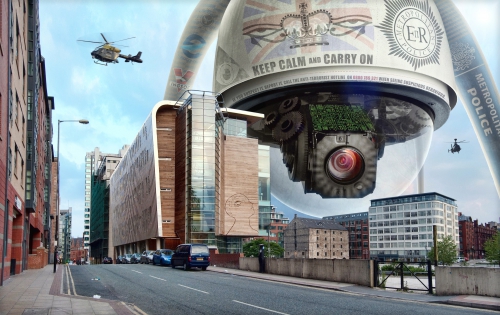
One of the most serious challenges facing progressives is the task of developing a discourse of both critique and possibility. This means insisting that democracy begins to fail and political life becomes impoverished in the absence of those vital public spheres such as higher education in which civic values, public scholarship, and social engagement allow for a more imaginative grasp of a future that takes seriously the demands of justice, equity, and civic courage. Such a challenge demands not only confronting symptoms as a way of decreasing the misery and human suffering that people experience on a daily basis, but most importantly addressing the root causes that produce the despotism and culture of cruelty that marks the current period. The time has come to develop a political language in which civic values, social responsibility, and the institutions that support them become central to invigorating and fortifying a new era of civic imagination, and a renewed sense of social agency. A revitalized politics for imagining a radical democracy must promote an impassioned international social movement with a vision, organization, and set of strategies to challenge the neoliberal nightmare engulfing the planet. The dystopian worlds of Orwell and Huxley are sutured in fear, atomization, and a paralyzing anxiety. Unfortunately, these dystopian visions are no longer works of fiction. The task ahead is to relegate them to the realm of dystopian fiction so they can remind us that a radical democracy is not simply a political project, but a way of life that has to be struggled over endlessly.
Henry A. Giroux currently holds the McMaster University Chair for Scholarship in the Public Interest in the English and Cultural Studies Department and a Distinguished Visiting Professorship at Ryerson University. His most recent books are America’s Education Deficit and the War on Youth (Monthly Review Press, 2013) and Neoliberalism’s War on Higher Education (Haymarket Press, 2014). His web site is www.henryagiroux.com.
Notes.
[1] Martin Gilens and Benjamin I. Page, “Testing Theories of American Politics: Elites, Interest Groups, and Average Citizens,” Perspectives on Politics, Volume 12 / Issue 03 (September 2014), p 581.
[2]Tom McKay, “Princeton Concludes What Kind of Government America Really Has, and It’s Not a Democracy,” Popular Resistance (April 16, 2014). Online:
http://www.policymic.com/articles/87719/princeton-concludes-what-kind-of-government-america-really-has-and-it-s-not-a-democracy
[3] Alain Badiou, The Rebirth of History, trans. Gregory Elliott (London, UK: Verso, 2012), p. 6.
[4] Leo Lowenthal, “Atomization of Man,” False Prophets: Studies in Authoritarianism, (New Brunswick, NJ: Transaction Books, 1987), pp. 191-182
[5] Brad Evans and Julien Reid, Resilient Life: The Art of living Dangerously (London: Polity, 2014).
[6] Robert Jay Lifton, Death in Life: Survivors of Hiroshima (Chapel Hill: University of North Carolina Press, 1987), p. 479. See Lynn Worsham’s brilliant use of Lifton’s work in her “Thinking with Cats (More to Follow),” JAC 30:3-4 (2010), pp. 405-433.
[7] Georges Didi-Huberman, Images in Spite of All: Four Photographs from Auschwitz, trans. Shane B. Lillis (Chicago: University of Chicago Press, 2008), pp. 1-2.
[8] Jonathan Turley, “10 reasons the U.S. is no longer the land of the free,” The Washington Post, (January 13, 2012). Online:
http://articles.washingtonpost.com/2012-01-13/opinions/35440628_1_individual-rights-indefinite-detention-citizens
[9] For a clear expose of the emerging surveillance state, see Glenn Greenwald, No Place to Hide (New York: Signal, 2014); Julia Angwin, Dragnet Nation: A Quest for Privacy, Security, and Freedom in a World of Relentless Surveillance (New York: Times Books, 2014); Heidi Boghosian, Spying on Democracy: Government Surveillance, Corporate Power, and Public Resistance, (City Lights Books, 2013).
[10] Catherine Lutz, “Making War at Home in the United States: Militarization and the Current Crisis,” American Anthropologist, (104:3, 2002), pp. (723)
[11] Adam Hudson, “1 Black Man Is Killed Every 28 Hours by Police or Vigilantes: America Is Perpetually at War with Its Own People,” AlterNet (March 28, 2013). Online: http://www.alternet.org/news-amp-politics/1-black-man-killed-every-28-hours-police-or-vigilantes-america-perpetually-war-its; see also the report titled Operation Ghetto Storm. Online: http://mxgm.org/wp-content/uploads/2013/04/Operation-Ghetto-Storm.pdf
[12]Michelle Alexander, “Michelle Alexander, The Age of Obama as a Racial Nightmare,” Tom Dispatch (March 25, 2012). Online: http://www.tomdispatch.com/post/175520/best_of_tomdispatch%3A_michelle_alexander,_the_age_of_obama_as_a_racial_nightmare/
[13] Noam Chomsky, “The Kind of Anarchism I believe in, and What’s Wrong with Litertarians,” AlterNet (March 28, 2013). Online: http://www.alternet.org/civil-liberties/noam-chomsky-kind-anarchism-i-believe-and-whats-wrong-libertarians
[14] Stuart Hall, Doreen Massey, and Michael Rustin, “After neoliberalism: analysing the present,” Soundings (Spring 2013). Online”
http://www.lwbooks.co.uk/journals/soundings/pdfs/s53hallmasseyrustin.pdf
[15] Orville Schell, “Follies of Orthodoxy,” What Orwell Didn’t Know: Propaganda and the New Face of American Politics, (New York, NY: Perseus Books Group, 2007), xviii
[16] See, especially, Radley Balko, Rise of the Warrior Cop: The Militarization of America’s Police Forces (New York: Public Affairs, 2013), Michelle Alexander, The New Jim Crow (New York: The New Press, 2010), and (and Jill Nelson, ed. Police Brutality (New York: Norton, 2000).
[17] Hannah Arendt, Hannah Arendt: The Last Interview and Other Conversations, (Brooklyn, NY. : Melville House Publishing, 2013), pp. 33-34.
[18] Paul Buchheit, “The Carnage of Capitalism,” AlterNet (August 17, 2014). Online:
http://www.commondreams.org/views/2014/08/18/carnage-capitalism
[19] Adolph Reed Jr., “Nothing Left: The Long, Slow Surrender of American Liberals,” Harper’s Magazine (March 2014), p. 29.
[20] Stuart Hall and Les Back, “In Conversation: At Home and Not at Home”, Cultural Studies, Vol. 23, No. 4, (July 2009), pp. 680-681
[21] Pierre Bourdieu and Gunter Grass, “The ‘Progressive’ Restoration: A Franco-German Dialogue,” New Left Review 14 (March-April, 2002), P. 2.
[22] Pierre Bourdieu, Acts of Resistance (New York: Free Press, 1998), p. 11.
[23] Juan Pablo Ferrero, “Are you ready for a new kind of left-wing politics?” The Conversation (October 29, 2014). Online: http://theconversation.com/are-you-ready-for-a-new-kind-of-left-wing-politics-33511
00:15 Publié dans Actualité, Philosophie | Lien permanent | Commentaires (0) | Tags : actualité, philosophie, néolibéralisme, surveillance, surveillance totale, dystopie, panopticon, libéralisme, censure |  |
|  del.icio.us |
del.icio.us |  |
|  Digg |
Digg | ![]() Facebook
Facebook
Gérard Dussouy: "Il faut fonder un Etat européen"
00:10 Publié dans Actualité, Affaires européennes, Entretiens, Géopolitique | Lien permanent | Commentaires (0) | Tags : gérard dussouy, entretien, géopolitique, politique internationale, europe, affaires européennes |  |
|  del.icio.us |
del.icio.us |  |
|  Digg |
Digg | ![]() Facebook
Facebook
USA: Bons baisers du post racisme
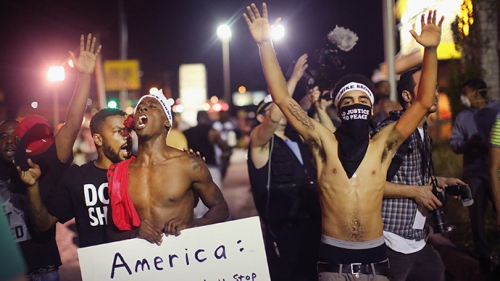
Jean Bonnevey
Ex: http://metamag.fr

00:07 Publié dans Actualité | Lien permanent | Commentaires (0) | Tags : actualités, ferguson, missouri, états-unis, noirs américains, afro-américains, émeutes raciales, racisme, racisme américain |  |
|  del.icio.us |
del.icio.us |  |
|  Digg |
Digg | ![]() Facebook
Facebook
Tenter d'éclaircir et de comprendre le terrorisme

Michel Lhomme
Ex: http://metamag.fr
La guerre des États-Unis dirigée contre l'Etat islamique sent le mensonge à plein nez. Nous avons décortiqué toutes les vidéos. Ce sont des mises en scène grossières, la dernière étant dans le genre un bijou de propagande. Mais il faut à la fois recruter dans les rangs et pousser les alliés pour les contraindre en fait à mener une guerre préventive dans le monde. Il faut mondialiser la guerre pour protéger à la fois la patrie américaine et l'Etat israélien, réaliser au final la Jérusalem céleste. L'agenda militaire américain vise le Grand Moyen Orient, le Grand Israël et à terme le contrôle de l'Iran. L'État islamique d'Irak et la Syrie (ISIS) est une création du renseignement américain. Le renseignement américain n'est pas le Pentagone. Dans la cacophonie régnante, il y a aussi à Washington des guerres des stratèges. L'incursion des brigades de l'Etat islamique en Irak à partir de Juin 2014 faisait partie d'une opération de renseignement militaire soigneusement planifiée et secrètement soutenue par les Etats-Unis, l'OTAN et Israël. Pour le Mossad, il y avait aussi une autre opération baptisée Nid de frelons qui visait à attirer comme un aimant les extrémistes arabes dans la région pour les abattre.
Le mandat de lutte contre le terrorisme est une fiction
L'État islamique est protégé par les Américains et ses alliés. Si d'ailleurs la coalition avait voulu éliminer les brigades de l'ISIS, ils auraient bombardé ses convois de camions Toyota quand ils traversaient le désert de la Syrie à l'Irak en Juin. Le désert syrien El-Arab est un territoire ouvert. Avec des avions de combat (F15, F22 Raptor, CF-18 ou Rafale et Mirage 2000), l'opération aurait été, d'un point de vue militaire, rapide, pratique et efficace, réglée en un tour de main. Mais il fallait laisser l'ISIS entrer pour s'approprier les armes des militaires irakiens, l'or des banques de Mossoul et faire éclater l'Irak pour se retourner ensuite contre la Syrie afin de l'achever sans égard pour les populations civiles.
L'opération de l'EILL, et beaucoup l'ont relevée, s'apparente à celle du soutien américain d'Al-Qaïda et ses affiliés. Au moment de la guerre soviéto-afghane, des camps d'entraînement pour Al-Qaïda avaient été établis au Pakistan. Sur une période de dix ans à partir de 1982-1992, 35 000 djihadistes venus de 43 pays islamiques avaient été recrutés par la CIA pour combattre dans le djihad afghan. Des manuels pour djihadistes avaient même été publiés par l'Université du Nebraska. Oussama ben Laden fondateur d'Al-Qaïda aux Etats-Unis a été recruté par la CIA au début de la guerre en 1979. Il avait 22 ans. La France est parfaitement au courant. Dans les années 2004-2005, la France protégeait aux Comores le numéro deux d'Al-Qaïda pourtant objet, officiellement ,d'une forte prime pour son arrestation.
L'État islamique (ISIL) est à l'origine une filiale d'Al-Qaïda créée par l'agence de renseignement des États-Unis avec le soutien du MI6 britannique, le Mossad d'Israël, l'Inter-Services Intelligence du Pakistan (ISI) et l'Arabie Intelligence ( GIP), Ri'āsat Al-Al-Istikhbarat'Amah (رئاسة الاستخبارات العامة). Le but initial était de soutenir l'insurrection en Syrie dirigée contre le gouvernement de Bachar al Assad.
C'est l'OTAN et le haut commandement turc qui étaient responsables au départ de l'embauche des mercenaires ISIS et Al Nusrah depuis le début de l'insurrection syrienne en Mars 2011. Selon des sources de renseignements israéliens, cette initiative a impliqué une campagne pour enrôler des milliers de volontaires musulmans pour combattre aux côtés des rebelles syriens. L'armée turque se proposait de loger ces volontaires, de les former et de les préparer à la frontière. Elle a assuré leur passage en Syrie et lorsqu'ils sont blessés, c'est elle aussi qui les soignent. On sait aussi, de source confirmée, que des forces spéciales britanniques et le MI6 ont participé à la formation de djihadistes chez les rebelles syriens et l'on se rappelle bien l'excellent accent britannique de John, le tueur de James Folley. Très publiquement le 9 décembre 2012, un haut responsable américain avouait sur CNN que les Etats-Unis et disait-il « certains alliés européens » utilisent leurs agents pour « former les rebelles syriens à la sécurisation des stocks d'armes chimiques en Syrie ».
En ce qui concerne la pratique de la décapitation chez les djihadistes, elle fait partie des manuels et des programmes de formation de terroriste parrainé et édité par les USA, programmes de formation mis en place en Arabie saoudite et au Qatar. La question qui reste énigmatique est : comment s'opère le recrutement ? En fait, comme la CIA en Amérique latine et comme tous les services secrets du monde l'ont fait dans l'histoire, un grand nombre des militants recrutés le sont chez les droits communs et ils sont recrutés comme mercenaires ISIS. On sait là encore de source assez fiable que les prisons saoudiennes sont quelque peu désertiques en ce moment. Ceux qui sont condamnés à mort en Arabie saoudite ont tous été enrôlés pour se joindre aux brigades terroristes en Syrie.
Le profil de nos « français de souche, djihadistes » est manifestement un profil de gens rationnels, pas du tout fanas. Ils ont de toute évidence été recrutés comme mercenaires ou se sont engagés comme tels. Ils sont peut-être musulmans mais certainement pas des « islamistes» embrigadés. Comment devient-on mercenaire alors qu'il n'y a plus de service militaire en France et pas encore d'annonces dans les journaux français ? On est le plus souvent « approché » dans une mosquée, dans une soirée ciblée ou dans les couloirs d'une université et l'on peut ainsi se retrouver comme une jeune fille brillante (cas véridique) soudain à Londres avec 20 000 euros sur son compte ou autre cas réel, avoir l'usage d'une carte bleue sans restriction. Disons le, de suite, ce n'est pas l'armée française qui peut se permettre ce genre de largesses. Alors qui ? Sur le terrain, on sait que des combattants djihadistes ont rencontré des officiers israéliens de Tsahal et suivi leurs conseils. Le Premier ministre israélien Benjamin Netanyahu et le ministre de la Défense Moshe Yaalon ont visité des mercenaires blessés dans un hôpital militaire de campagne à la frontière avec la Syrie le 18 Février 2014. De même, le sénateur américain John McCain a rencontré des dirigeants terroristes djihadistes en Syrie. Actuellement, la milice de l'EILL (devenu chez nous Daesh) est la cible d'une campagne de bombardement des États-Unis et de l'OTAN, la France étant en première ligne dans le cadre du mandat de « lutte contre le terrorisme ». Comment comprendre ce « double jeu » militaro-secret alors que Washington continue de fournir une aide militaire conséquente à l'Etat islamique ? Dans la dernière vidéo de l'ISIS réalisée pour inciter les alliés à continuer, on voit bien que les bombardements des États-Unis visent aussi à frapper surtout au passage l'infrastructure économique de l'Irak et la Syrie, ses usines, ses voies de communication, ses immeubles et ses raffineries de pétrole. Aurions-nous oublié la possibilité d'un double objectif, comme ceux de 1944 et 1945 sur la Bretagne et la Normandie?
En soi, le projet de califat n'est pas arabe
Il fait partie d'un plan anglo-saxon très ancien (revoyez Lawrence d'Arabie) et il fait partie d'un ordre du jour très précis de la politique étrangère américaine défini depuis longtemps. Il est chargé de diviser l'Irak et la Syrie dans des territoires distincts: un califat islamiste sunnite, un califat chiite et une République arabe du Kurdistan. En fait, nous sommes, avec la guerre mondiale contre le terrorisme qui a même son sigle propre, le GWOT comme pour l'OMC ou le GATT dans une autre séquence de la mondialisation guidée maintenant par la mondialisation de la guerre (Mali, Niger, Nigéria, République centrafricaine, Somalie, Yémen, Kenya) et l'accomplissement quasi théologico-eschatologique du Royaume. Il ne manque plus que des Islamistes en Ukraine ! Il y en a déjà en Chine ainsi que quelques Tatars esclavagistes et collabos en Crimée !
Revenons à nos Normands, à nos décapiteurs !
Ce sont sans doute de bons naïfs face à une religiosité musulmane authentique. Ils aiment l'argent. A Elbeuf, on a toujours aimé flamber ! Ils sont en service commandé et bien payé. Méfions-nous de ces sorties répétées de jeunes convertis. Rappelons-nous : dans les guerres d’antan, avant l’assaut décisif, une bonne préparation avec l’artillerie s’imposait. Les anglo-américains nous ont montré qu’ils suivaient souvent cette méthode à l'ancienne pour préparer leurs coups. Avant l’action proprement dite, une préparation minutieuse par l’artillerie médiatique vient en fait d'être mise en place. C'est réussi, Le Monde, sorte de Pravda française y a déjà consacré sa première page. Tout le monde savait en France qu’il y avait des djihadistes français en Syrie et en Irak mais ce qu'on savait moins c'est qu’ils se prénommaient en réalité Maxime ou Michael, au lieu de Mohamed ou Kader ! Ces prénoms bien « souchiens » tombent à point. Quelle que soit la réalité de la composition des djihadistes français en Syrie, la brusque apparition de ces vidéos synchronisées avec des « études statistiques » confirmant que les banlieues ou les mosquées ne sont pas le terreau du radicalisme musulman, nous amènent à nous demander pourquoi ces djihadistes, qui étaient restés discrets pendant trois ans, ont tout d’un coup éprouvé le besoin de fanfaronner devant les caméras ? Un besoin subit de notoriété ? Enfin pourquoi le sentiment de danger national semble plus important pour les médias, alors que rien n’a changé, lorsque ce sont des « nationaux » qui font la guerre ? Craint-on la guerre civile ou nous y prépare-t-on ? Et dans cette future guerre, un Maxime serait-il plus dangereux qu’un Mohamed ?
Tout ceci est bien sûr destiné à maintenir le climat habituel de peur, le terrorisme d'Etat si bien analysé naguère par Gianfranco Sanguinetti mais le changement de cap concernant la nature du djihadisme français est trop brutal pour qu’il soit anodin. D'ailleurs, certains lorgnent déjà sur Internet qui, selon eux, aurait remplacé les mosquées. Préparez-vous ! N’y aurait-il que cela ? De fait, Noël approche... L'artillerie a été lancée et si comme dans la guerre en dentelle, l'assaut ne saurait tarder ?...
00:05 Publié dans Actualité | Lien permanent | Commentaires (0) | Tags : actualité, djihadisme, fondamentalisme musulman, fondamentalisme islamique, levant, irak, syrie, eiil, politique internationale |  |
|  del.icio.us |
del.icio.us |  |
|  Digg |
Digg | ![]() Facebook
Facebook
Le faux-semblant de la régularisation de l'immigration décidée par Obama
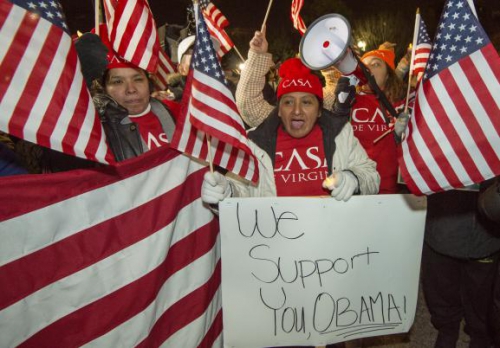
Le faux-semblant de la régularisation de l'immigration décidée par Obama
Mais lorsque l'on regarde le détail de l' «executive action on immigration » décidée le 21 novembre par la Maison Blanche, dont Obama s'est félicité dans le cadre d'une intervention à la télévision, on constate qu'elle n'engage pas à grand chose. Le document (voir www.migrationpolicy.org/pubs/administrativefixes.pdf ) comporte trois sections . La première renforce les mesures destinées à bloquer l'immigration à la frontière.De nouveaux moyens sont mis à disposition de la police aux frontières et centralise celle-ci sous un commandement unifié, afin de faire plus efficacement la chasse aux immigrants clandestins.Ajoutons que cette "chasse" aboutit à un nombre de décès sans doute aussi nombreux que ceux enregistrés en Méditerranée dans le cadre de Frontex.
Une seconde section vise à « déporter » c'est-à-dire renvoyer chez eux, non plus les familles comme aujourd'hui, mais seulement les individus dès lors qu'ils sont suspects de comportements « criminels ». Parmi eux, inclus dans les maffieux et terroristes, se trouvent ceux qui traversent la frontière de façon illégale.
La troisième section, jugée la plus libérale, exonère pendant 3 ans de tout risque d'expulsion les résidents de plus de 5 ans, payant des impôts et dotés d'enfants ayant la nationalité américaine. Après ce délai, les expulsions pourront reprendre.
Lors de ses deux premières années à la présidence, alors qu'il disposait d'une majorité au Congrès, Obama n'avait rien fait pour limiter les expulsions de masse, entreprises sous l'administration de Bush et qui ont intéressé environ 400.000 personnes. Après que les Républicains aient pris le contrôle de la Chambre, le Sénat sous majorité démocrate avait poursuivi cette action. Le service en charge, Immigration and Customs Enforcement , avait encore accru le nombre des contrôles et des expulsions.
Les nouvelles mesures recommandées par Obama, et si vivement applaudies dans les médias, prévoient des mesures si complexes pour conférer le droit à résidence que le nombre de ceux susceptibles d'en bénéficier, soit environ 3,7 millions de personnes, hésiteront à se faire connaître de l'administration. Ils préféreront conserver le statut de clandestin, d'autant plus que leurs employeurs, eux-mêmes illégaux, les y pousseront.
Les gouvernements et citoyens des pays européens, si soucieux eux-mêmes de contrôler les clandestins et prévenir les immigrations illégales, considéreront qu'Obama n'a fait que ce qu'il devait faire pour rendre de facto l'immigration très difficile. Ils souhaiteront que l'Europe fasse preuve d'une même sévérité. Peut-être ont ils raison. Mais alors, plutôt que présenter Obama comme un grand philanthrope, nous ferions mieux de reconnaître que le POTUS s'est inscrit en fait dans une tradition répressive bien affirmée.
00:05 Publié dans Actualité | Lien permanent | Commentaires (0) | Tags : actualité, obama, états-unis, immigration, politique, politique internationale, actualité, affaires américaines |  |
|  del.icio.us |
del.icio.us |  |
|  Digg |
Digg | ![]() Facebook
Facebook
Nous sommes en guerre économique...
Nous sommes en guerre économique...
La revue Conflits, dirigée par Pascal Gauchon, vient de sortir en kiosque un numéro hors-série consacré à la guerre économique.
Vous pourrez y découvrir, notamment, des articles de Pascal Gauchon ("La paix est un souhait, la guerre est un fait" ; "Nous sommes en guerre économique !"), de Christian Harbulot ("Pour avoir un devenir, il faut penser la puissance" ; "La France a-t-elle un train de retard"), d'Olivier Zajec ("La guerre pour les matières premières"), d'Alain Juillet ("De la guerre économique à l'intelligence économique"), de Massimo Magiardo ("Un nouveau «péril jaune», fantasme ou réalité"), de Frédéric Munier ("La guerre économique d'hier à aujourd'hui" ; "Le retour du protectionnisme") ou d'Hervé Juvin (De la guerre économique à la guerre intégrale").
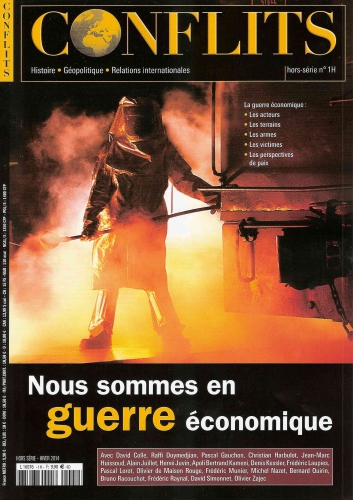
" La guerre économique est l'affrontement que se livrent les Etats-nations pour s'assurer le contrôle des «ressources rares» nécessaires à leur économie, et parmi ces ressources rares nous entendons les clients que se disputent les entreprises multinationales.
Elle s'est intensifiée depuis la fin du communisme et surtout depuis les succès des pays émergents qui disputent aux vieilles nations ces «ressources rares» dont tous ont besoin.
Elle prend des formes multiples - matières premières, technologies, capitaux, cerveaux, informations, monnaie sont autant d'enjeux du conflit.
Elle nous concerne tous, car comme le notait dès 1991 l'inventeur de la notion, Bernard Esambert : «Chaque nation essaie de gagner cette guerre d'un genre nouveaux dont les entreprises forment les armées et les chômeurs les victimes. »
Avec la participation de David Colle, Pascal Gauchon, Christian Harbulot, Jean-Marc Huissoud? Alain Juillet, Hervé Juvin, Bruno Racouchot, Pascal Lorot, Frédéric Munier, Bernard Quirin, David Simmonet, Olivier Zajec, etc... "
00:05 Publié dans Actualité, Géopolitique, Revue | Lien permanent | Commentaires (0) | Tags : revue, guerre économique, économie, géopolitique, politique internationale, pascal gauchon |  |
|  del.icio.us |
del.icio.us |  |
|  Digg |
Digg | ![]() Facebook
Facebook
Karl Jaspers, the Axial Age, and a Common History for Humanity
Karl Jaspers, the Axial Age, and a Common History for Humanity
 |
| The Philosophers of the "Axial Age": Socrates, Confucius, Buddha and Zarathustra |
But this Western-oriented teaching was increasingly rejected by historians who felt that all the peoples of the earth deserved equal attention. A major difficulty confronted this feeling: how can a new history of all humans — "universal" in this respect — be constructed in light of the clear pre-eminence of Europeans in so many fields?
It soon became apparent that the key was to do away with the idea of progress, which had become almost synonymous with the achievements of the West. The political climate was just right, the West was at the center of everything that seemed wrong in the world and in opposition to everything that aspired to be good: the threat of nuclear destruction, the prolonged Vietnam War, the rise of pan-Arabic and pan African identities, the "liberation movements" in Latin America, the Black civil rights riots, the women's movement.
More than anything, the affluent West was at the center of a world capitalist system wherein the rest of the world seemed to be systematically "underdeveloped" at the expense of the very "progression" of the West. Millions of students were being taught that the capitalist West, in the words of Karl Marx, had progressed to become master of the world "dripping from head to foot, from every pore, with blood and dirt".
The idea of Western progress was eventually replaced with the idea of "world history connected". Students would now have to learn that all humans irrespective of cultural and historical differences were alike as homo sapiens, as members of the same planet, and as migratory creatures who had made history in unison. The aim was hardly that Europeans were creatively involved in the creation of Chinese, Mesopotamian, or Mayan civilization; it was that they were morally and economically responsible for the "underdevelopment" of civilizations that were once more developed than the Germanic Barbarians of the Dark Ages — while insisting simultaneously that non-Europeans were the ultimate originators or co-participators of every great epoch in Europe's history.
But before this great fabrication was imposed on unsuspecting white students, a preparatory, though by no means identical, idea had been articulated by a German named Karl Jaspers: the notion that the major civilizations of the Old World experienced, more or less at the same time, a "spiritual process" characterized by a common set of religious, psychological, and philosophical inquiries about what it means to be "specifically human". The argument was that humanity, at this point in history, together, came to pose universal questions about the meaning of life with similar answers.
The Goal of Jasper's Axial Age
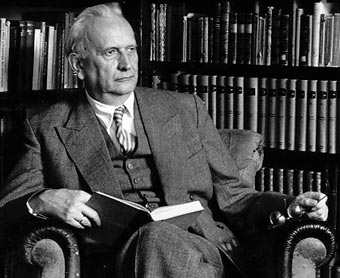 Jaspers, a highly respected philosopher, argued in The Origin and Goal of History which was published in 1949 a few years after the end of WWII that Western culture was not uniquely gifted with ideas that bespoke of mankind generally and the course of history universally; other major civilizations, too, had espoused outlooks about humanity together with moral precepts with universal content.
Jaspers, a highly respected philosopher, argued in The Origin and Goal of History which was published in 1949 a few years after the end of WWII that Western culture was not uniquely gifted with ideas that bespoke of mankind generally and the course of history universally; other major civilizations, too, had espoused outlooks about humanity together with moral precepts with universal content. Jaspers believed that this ability was "empirically" made possible by the occurrence of a fundamental "spiritual" change between 800 and 200 BC, which gave "rise to a common frame of historical self-comprehension for all peoples — for the West, for Asia, and for all men on earth, without regard to particular articles of faith". Believing that these spiritual changes occurred simultaneously across the world, Jaspers called it the "Axial Period". It is worth quoting in full Jasper's identification of the main protagonists of this period:
The most extraordinary events are concentrated in this period. Confucius and Lao-tse were living in China, all the schools of Chinese philosophy came into being, including those of Mo-ti, Chuang-tse, Lieh-tsu and a host of others; India produced the Upanishads and Buddha and, like China, ran the whole gamut of philosophical possibilities down to skepticism, to materialism , sophism and nihilism; in Iran Zarathustra taught a challenging view of the world as a struggle between good and evil; in Palestine the prophets made their appearance, from Elijah, by way of Isaiah and Jeremiah to Deutero-Isaiah; Greece witnessed the appearance of Homer, of the Philosophers — Parmenides, Heraclitus and Plato — of the tragedians, Thucydides and Archimedes. Everything implied by these names developed during these few centuries almost simultaneously in China, India, and the West, without any one of these regions knowing of the others (2).
The Greek, Indian and Chinese philosophers were unmythical in their decisive insights, as were the prophets [of the Bible] in their ideas of God (3).
It is not that the philosophical outlooks of these civilizations were identical, but that they exhibited similar breakthroughs in posing universal questions about the "human condition", what is the ultimate source of all things? what is our relation to the universe? what is the Good? what are human beings? Prior cultures were more particularized, tribal, polytheistic, and devoid of self-awareness regarding the universal characteristics of human existence. From the Axial Age onward, "world history receives the only structure and unity that has endured — at least until our own time" (8).
The central aim of Jasper's book was to drive home the notion that the different faiths and races of the world were once running along "parallel lines" of spiritual development, and that we should draw on this "common" spiritual source to avoid the calamity of another World War. The fact that these civilizations had reached a common spiritual point of development, without any direct influences between them, was likely, in his view, the "manifestation of some profound common element, the one primal source of humanity" (12). We humans have much in common despite our differences.
German Guilt requires a Common History
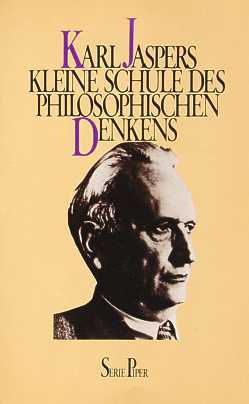 This notion of an Axial Age, with which Jaspers came to be identified, and which has been accepted by many established world historians, historical sociologists and philosophers, is also a claim he felt in a personal way (as a German) in the aftermath of the Second World War. According to Jaspers, after the end of the Axial Age around 200 BC, the major civilizations had ceased to follow "parallel movements close to each other" and instead began to "diverge" and "finally became deeply estranged from one another" (12). The Nazi experience was, in his estimation, an extreme case of divergence.
This notion of an Axial Age, with which Jaspers came to be identified, and which has been accepted by many established world historians, historical sociologists and philosophers, is also a claim he felt in a personal way (as a German) in the aftermath of the Second World War. According to Jaspers, after the end of the Axial Age around 200 BC, the major civilizations had ceased to follow "parallel movements close to each other" and instead began to "diverge" and "finally became deeply estranged from one another" (12). The Nazi experience was, in his estimation, an extreme case of divergence. It should be noted, in this vein, that Jaspers, whose wife was Jewish, was the author of a much discussed book, The Question of German Guilt, in which he extended culpability to Germany as a whole, to every German even those who were not members of the Nazi party. A passage from this book, cited upfront in a BBC documentary, The Nazis — A Warning from History, reads:
That which has happened is a warning. To forget it is guilt. It must be continually remembered. It was possible for this to happen, and it remains possible for it to happen again at any minute. Only in knowledge can it be prevented.
Hannah Arendt
An interesting figure drawn to the idea of a common historical experience, in the early days after WWII, was Hannah Arendt, a student of Jaspers. She obtained a copy of The Origin and Goal of History as she was completing her widely acclaimed book, The Origins of Totalitarianism. It is quite revealing that Elisabeth Young-Bruehl's traces, in a short essay titled Hannah Arendt's Jewish Identity, the roots of Arendt's cosmopolitanism to the role of the Jews of Palestine as one of the Axial Age peoples. Together with Jaspers, Arendt came to share
the project of thinking about what kind of history was needed for facing the events of the war and the Holocaust and for considering how the world might be after the war. They agreed that the needed history should not be national or for a national purpose, but for humankind.
It is Arendt's Jewish identity — not just the identity she asserted in defending herself as a Jew when attacked as one, but more deeply her connection to the Axial Age prophetic tradition — that made her the cosmopolitan she was.
- "enlarge" their minds and include the experience and views of other cultures in their thinking;
- to overcome their Eurocentric prejudices and encompass the entire world in their historical reflections;
- to develop a sense of the "human condition" and learn how to talk about what is "common to all mankind";
- to learn how they are culturally shaped both by their particular conditions and the conditions and experiences shared by all humans on the planet.
The "Special Quality" of the West — Rejected
This call by Arendt would coalesce with similar arguments about the "inventions of nations", the "social construction of races", and the idea that we are all primordially alike as Homo Sapiens. Jaspers, at least in his book The Origin and Goal of History, did not go this far, but in fact retracted, in later chapters, from the general statements he made in the introduction about the Axial Age being a common spiritual experience across the planet, acknowledging the obvious:
it was not a universal occurrence...There were the great peoples of the ancient civilizations, who lived before and even concurrently with the [Axial] breakthrough, but had no part in it (51).
in Asia, on the other hand, a constant situation persists; it modifies its manifestations, it founders in catastrophes and re-establishes itself on the one and only basis as that which is constantly the same (53).
if science and technology were created in the West, we are faced with the question: Why did this happen in the West and not in the other two great cultural zones (61-2)?
Here are more special qualities mentioned by Jaspers about the West: "Tragedy is known only to the West." While other Axial cultures spoke of mankind in general, in the West this universal ambition regarding the place of man in the cosmos and the good life did not "coagulate into a dogmatic fixity" (64). "The West gives the exception room to move." In the West "human nature reaches a height that is certainly not shared by all and to which...hardly anyone ascends." "...the perpetual disquiet of the West, its continual dissatisfaction, its inability to be content with any sort of fulfillment" (64).
This is the language of Spengler's Faustian Soul. Some in the New Right don't like this perpetual restlessness about the West and would prefer to see the West become one more boring traditional culture. But this cannot be, for "in contrast to the uniformity and relative freedom from tension of all Oriental empires":
the West is typified by resoluteness that takes things to extremes, elucidates them down to the last detail, places them before the either-or, and so brings awareness of the underlying principles and sets up battle-fronts in the inmost recesses of the mind. (65)
Yet, there never was an Axial Age: the PreSocratics were dramatically different in their inquiries, and far more universal in their reasoning, than the prophets of the Old Testament, the major schools of Confucianism, Taoism, and Legalism in China, and the Hindu religions of India. As far as I know, no one has explained this seemingly paradoxical combination of extreme Western uniqueness and extreme universalism. I hope to address this topic in a future essay.
00:05 Publié dans Philosophie | Lien permanent | Commentaires (0) | Tags : philosophie, allemagne, karl jaspers |  |
|  del.icio.us |
del.icio.us |  |
|  Digg |
Digg | ![]() Facebook
Facebook


